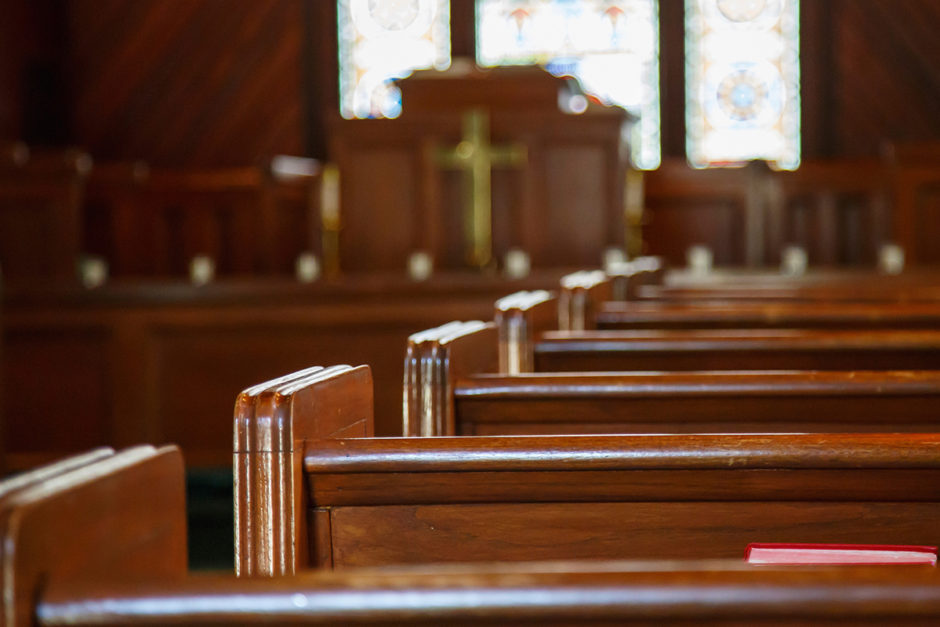Lots of things get said in a Sunday morning worship service. Welcomes are given. Songs are sung. Sermons are preached. Announcements are made. But there is one unexpected encouragement that, week after week, we aim to communicate to those who join our weekly corporate worship gatherings: that our church is a safe place.
What we mean by this is that our worship gathering is open to all—believers and unbelievers, church members and non-church members, flagrant sinners and “respectable” sinners.[1] Accordingly, we say something like this every week: “We want you to know this is a safe place for you—whether you’re a Christian looking for a church home or whether you’re an unbeliever who just happened to walk through our doors this morning. No matter who you are, what you look like, or what you’ve done, you are welcome here.”
There are two reasons we do this. First, we do it to reiterate to our people—the covenant members of our church—the implications of the gospel, namely that, “here there is neither Greek nor Jew, circumcised or uncircumcised, barbarian, Scythian, slave, free; but Christ is all, and in all” (Col 3:11). The “here” where these realities are displayed is the new creation established by the gospel—of which the church serves as an embassy. There are no external qualifiers which preclude a person from faith in Christ—neither race nor nationality nor social status nor education. And there is no sin so deep that Christ’s mercy is not deeper still. We are a community of repenting sinners, and we welcome fellow repentant sinners to confess faith in Christ our substitute and join us for this journey of faith. All of us bear the scars of our sins, and some wounds are graver and fresher than others. And so we remind our people that even as Christ welcomed sinners and called them to repent and believe, so too must we, even as we wage war against our own sin.
The second reason we do this is also rooted in the gospel. We want to communicate, similarly, to unbelievers that there is no prerequisite to faith in Christ. More than a “come as you are,” no dress code mentality, we want to put at ease even those guests who may be far from God. After all, we too once were “without hope and without God in the world” (Eph 2:12). God’s church is not limited to people with a certain look or backstory. Instead, we believe God rescues all sorts of people from all sorts of scenarios. By stressing to people that they are welcome as they are, we hope to implicitly teach the truth that nothing makes us fit for the gospel. But rather, as the hymn frames it, “all the fitness he requires is that you feel your need for Him.”
God seems to be using this repeated refrain—that “this is a safe place”—in several beautiful ways:
Our small town is home to a halfway house for women overcoming substance abuse, which is providentially located just a few blocks from our church building. These women are involved in a structured program that lasts several months, before they then move on with their lives and back to whatever communities they count as home. But as ladies cycle through the program, they are consistently finding our church as a place to be nourished in the gospel and find short-term community. One woman approached me after the service and shared her apprehension about attending, but upon hearing the “safe place” phrase she was put at ease. As it turns out, her therapist had been encouraging her to look for safe places to form relationships and grow.
Another joy is that we have people commonly considered to be far from God who join us regularly. In particular, two homosexual couples—one male, one female—have attended our services off and on, and because we believe that “faith comes by hearing, and hearing through the word of Christ” (Rom 10:17), we rejoice in this. In various sermons—and in personal conversation—we have had the opportunity to affirm Scripture’s clear teaching on marriage and human sexuality. Yet, they continue to join us—and we continue to pray for their repentance and faith.
A final blessing is an agnostic attender whom I now count a friend. In support of his wife, my friend gathers regularly with us, and we’ve had a number of chances to discuss Scripture, philosophy, and ethics. He remains committed to his viewpoint (for now!), but every so often he thanks us for including people like him in our welcome, and he encourages us to keep it up.
The gospel shines brightly when Christ alone unifies an otherwise diverse group of people. And while non-members aren’t constitutive of this unity, they are potentially so. With a clear membership process, which requires both doctrinal and covenantal (lifestyle) affirmations, there is no risk of confusing mere attenders of our church with covenant members. As a result, we welcome all people, praying that the God would save both prodigal sons and older brothers—the irreligious and the religious—that as God’s diverse people we would collectively testify to the boundless grace of God.
NOTES
[1] For the concept of so-called “respectable” sins, see Jerry Bridges, Respectable Sins. Colorado Springs: NavPress, 2007.





